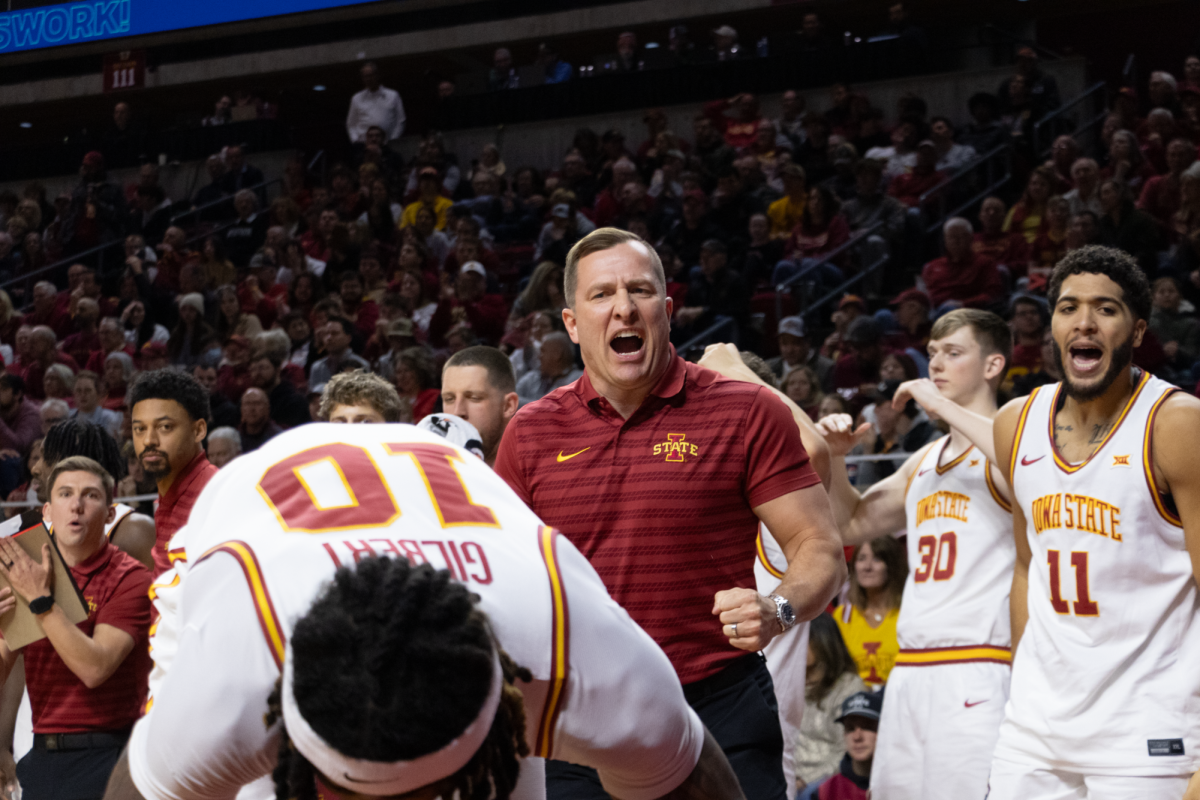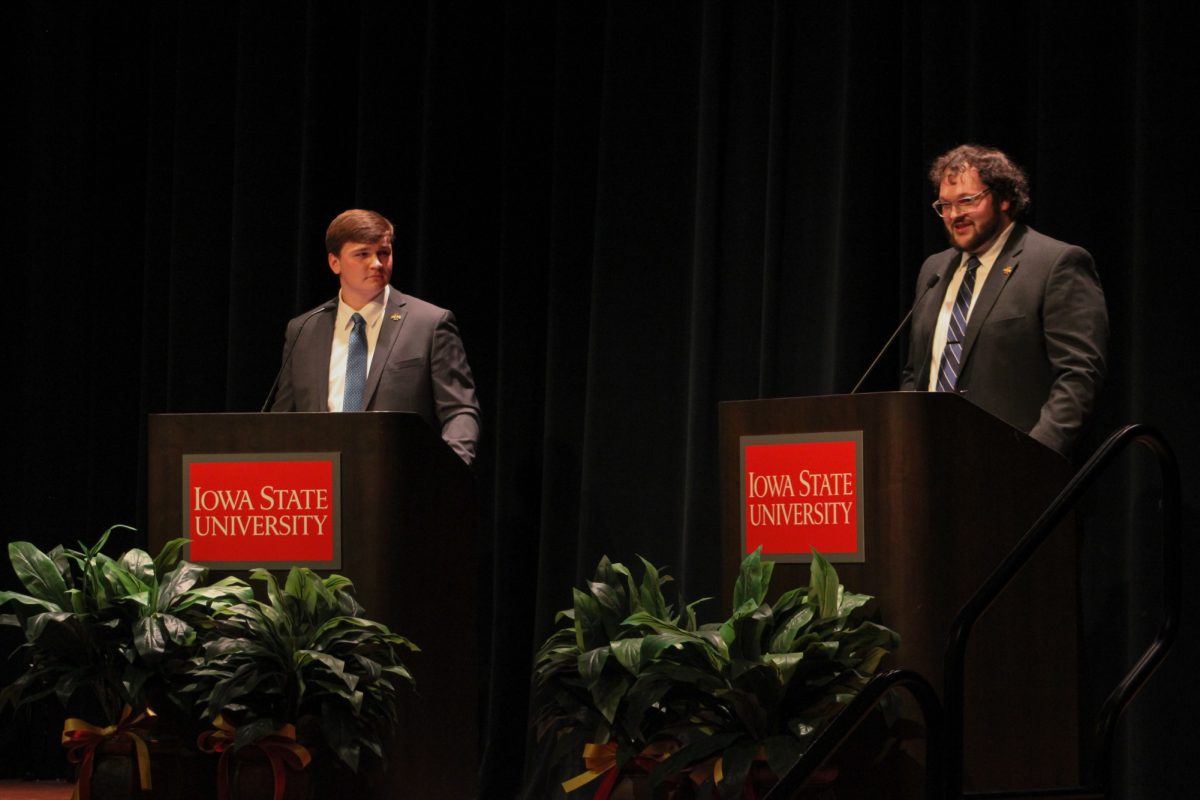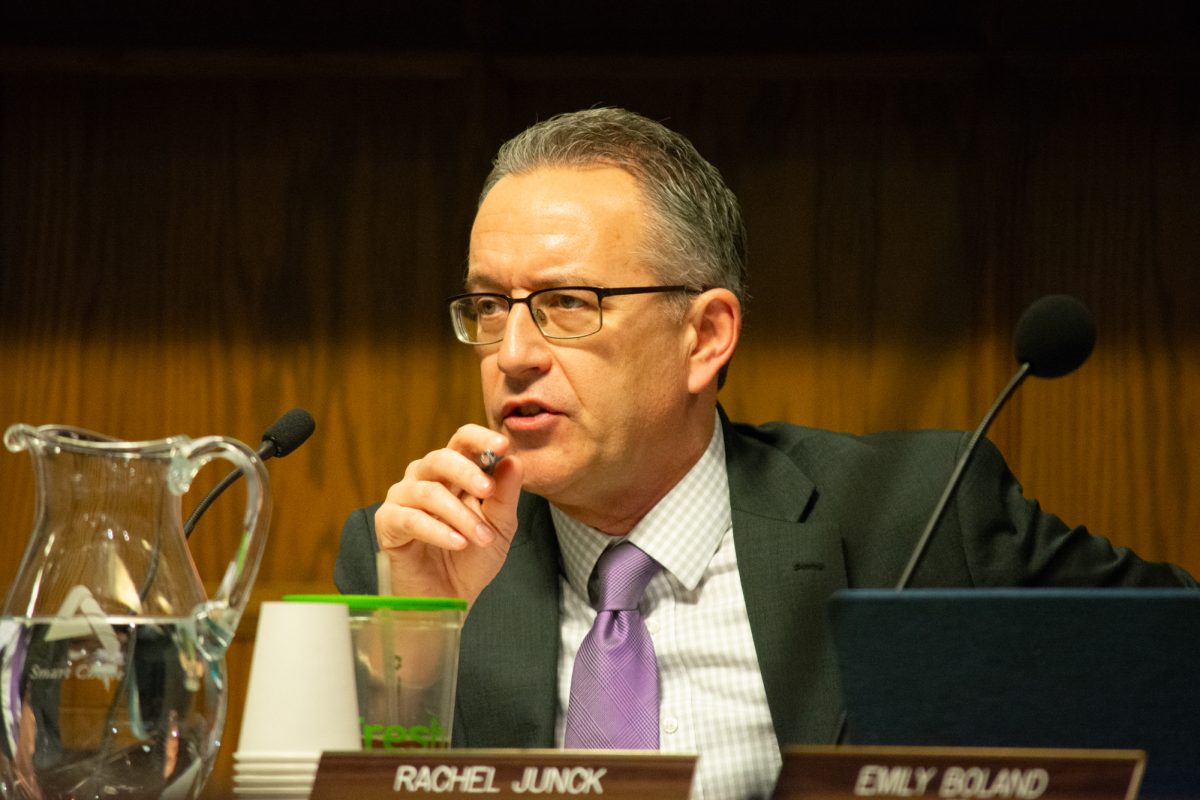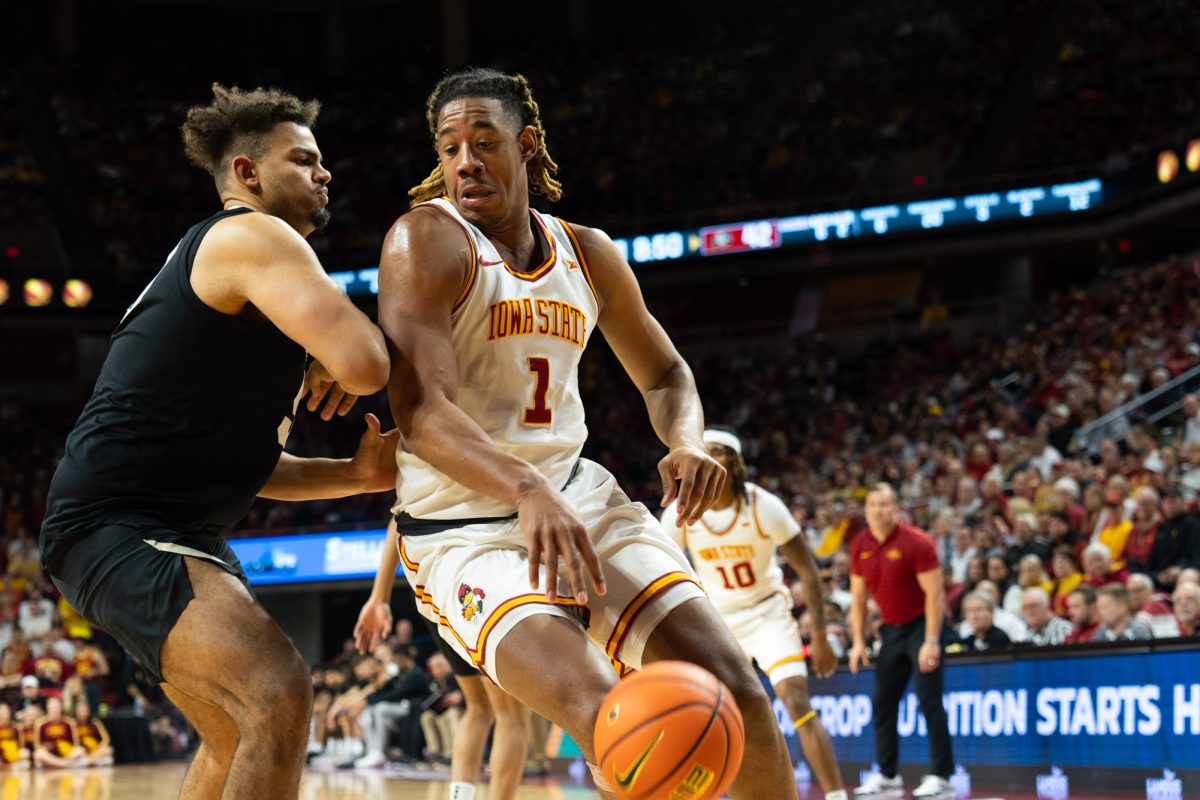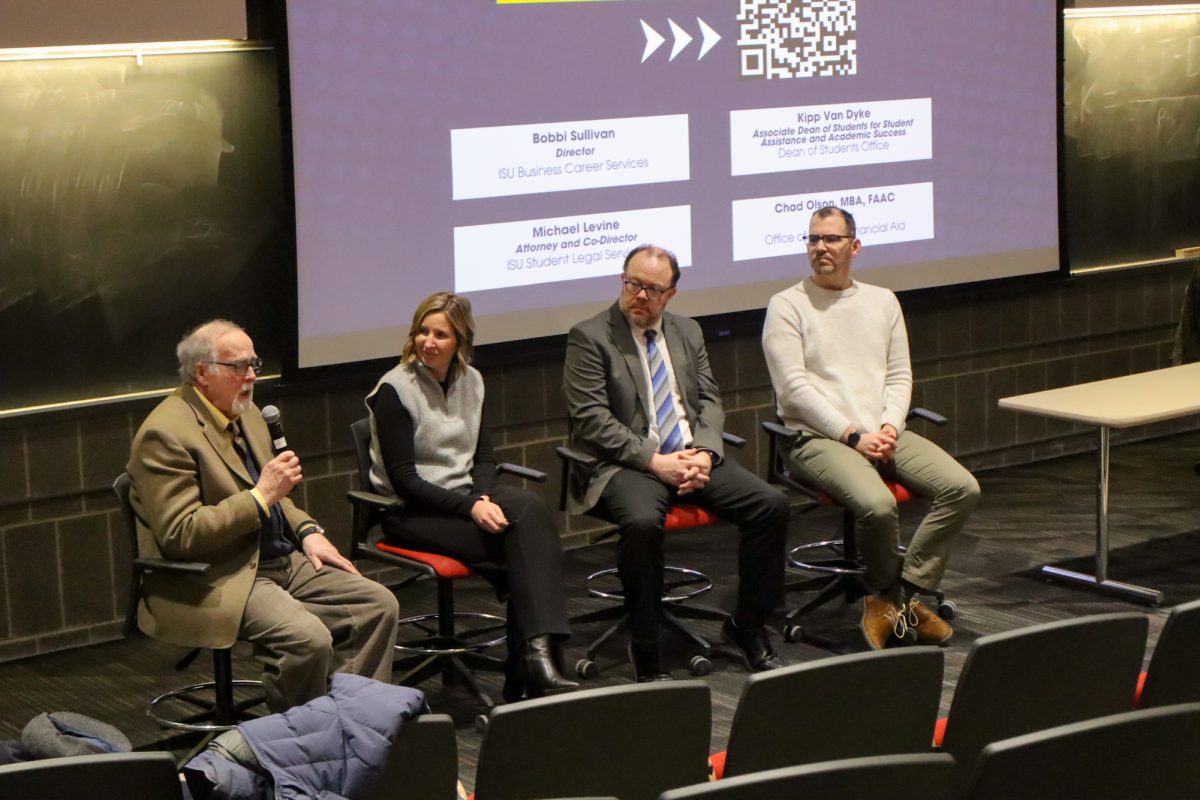ISU phone center raises millions from alumni
December 12, 1997
Hidden in a Durham Hall computer lab is a student fund-raising program that raised more than $2.6 million last year by calling ISU alumni and parents.
“It’s cool that it is students doing the fund-raising for their own cause,” said Brian Kish, assistant director of annual giving, of the students employed by the Iowa State phone center.
Kish said the phone center has “been going on for years, but not to the magnitude that it is at now.”
In fact, he said, the phone center, a “top-of-the-line computerized system,” is so successful that one student fund-raiser called an alumni last year who wanted to give $1 million to ISU. Kish said the large pledge was then passed on to the right people.
“Without students calling, we might not have ever discovered that the person wanted to give,” Kish said.
The phone center, which Kish said is one of the best student fund-raising organizations in the nation, has been visited by other universities that want to model their fund-raising program after it.
“Over 50 schools, including Stanford, have come to see how we fund-raise,” Kish said.
Jan Roden, student fund-raiser and a sophomore in pre-business, said the phone center raises so much money because the phone calls do not just solicit money but promote the university as well.
Kish agreed and said it is “not really a total fund-raising call, but a ‘friend-raising’ one.”
“We want to bring them mentally back as students” so alumni will get nostalgic about the university and will want to give a donation, Kish said.
Roden said she usually receives a pledge when she can talk to the alumnus about something he or she has “in common or something that they might be interested in” at ISU.
The biggest donation Roden said she received was $2,000. The alumnus who gave the extraordinary gift was an engineering major when he attended ISU, and Roden said he liked the idea of giving to the new engineering building being constructed.
ISU alumni and parents can give to just about anything on campus, but the money donated is usually allocated to scholarships, building renovations, equipment and faculty enhancement, Kish said.


